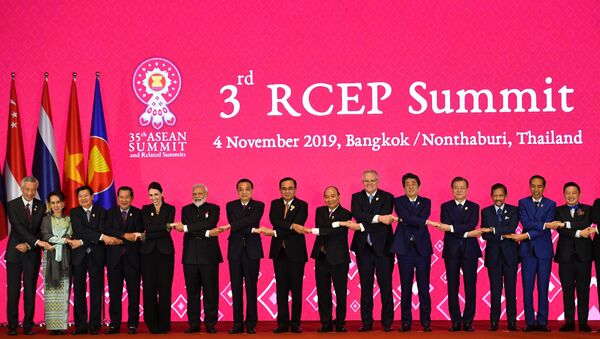Indian Home Minister Amit Shah has defended Prime Minister Narendra Modi’s decision to withdraw from the China-led Regional Comprehensive Economic Partnership (RCEP).
In an article published in The Economic Times, Shah said the decision “cements India’s growing stature as a country that is rock solid in its resolve to not only protect its own interests but also to boldly ward off any attempts to being arm-twisted”.
According to Shah, Modi's move will "go down as a historic milestone for India’s bold decision to stay away from RCEP".
On 4 November, Prime Minister Modi announced the decision to opt out during the RCEP free trade agreement summit in Bangkok, saying that the participating countries did not adequately address India’s concerns on free market access and non-tariff barriers.
15 of 16 parties to the talks concluded negotiations, with India disagreeing on the current terms and seeking a satisfactory resolution to several "significant outstanding issues".
"India has significant outstanding issues, which remain unresolved. All RCEP Participating Countries will work together to resolve these outstanding issues in a mutually satisfactory way. India’s final decision will depend on the satisfactory resolution of these issues", a joint leaders' statement on the RCEP read.
The agreement is viewed as an alternative to the Trans-Pacific Partnership (TPP), which was signed by Australia, Brunei, Canada, Chile, Japan, Malaysia, Mexico, New Zealand, Peru, Singapore, Vietnam, and the United States in February 2016. The deal never took effect, as Washington pulled out of it in January 2017.
RCEP implies the signing of a free trade agreement between 10 ASEAN member states – Brunei, Cambodia, Indonesia, Laos, Malaysia, Myanmar, Philippines, Singapore, Thailand, and Vietnam – as well as Russia, Australia, India, China, New Zealand, South Korea, Japan, and the United States.




